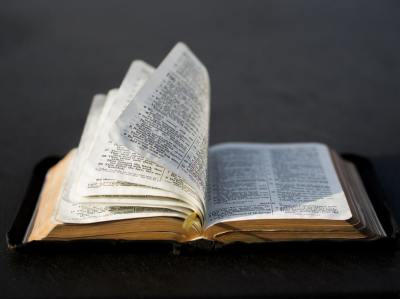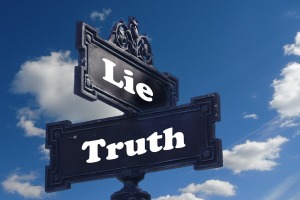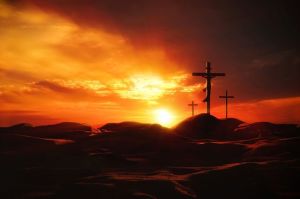World Book Day and the Good Book

Today is the United Nations’ designated “World Book Day,” a symbolic day for world literature, cultural knowledge, and collective wisdom. Now is the time, perhaps more than ever before, with schools, libraries, and bookstores shuttered around the world and so many of us quarantined and isolated in our homes, to mark World Book Day by reading a good book.
COVID-19 has turned our world upside down, and there is a profound anxiety that lurks deep in our collective psyche. Our confidence and assumptions have been shaken in a matter of a few months. People are dying from a virus we barely understand. The global economy has come to a grinding halt. Our healthcare systems are pressed to their limits. Our lives and institutions suddenly seem so much more unstable and insecure. The troubling reality is that COVID-19 did not make our world vulnerable. It was always this fragile. We were just blissfully ignorant until now. You might be wondering, what does this mean?
We in the modern West are psychologically ill-equipped to conceptualize a pandemic. Natural threats like plagues or famines seem to be something that only afflicted our distant ancestors. We, on the other hand, are the children of the eighteenth-century Enlightenment thinkers. They were confident that through reason and investigation, everything could be understood and controlled. Consequently, we think that we are no longer at the mercy of nature. Rather, we are its master. And to a large degree, this is true. Unlike our ancestors, we don’t fear widespread famine, natural disasters, or disease. Surely, we are beyond that. Or so we thought.
Ancient people, on the other hand, lived under the constant awareness that natural events, like disease, could wipe them out. The fear did not cripple them, but it was part of their reality. The average ancient person suffered more than we could possibly imagine. Therefore, it would be helpful to turn to the wisdom of ancient texts as we confront the threat of something that we modern people thought that we were beyond.
The Hebrew Bible’s book of Job may be just the place to start. It is arguably the greatest meditation on the nature of suffering in all of world literature. Job, the protagonist, faces one brutal calamity after another. His children are wiped out. All his wealth is destroyed. His body is wracked by disease. The book of Job is remarkably relevant in this moment and speaks to our present condition.
Job wants to know the meaning of his suffering. Various characters offer him advice. His friends assert that Job is getting what he deserves because he must have offended God. Job rejects this simplistic moralistic interpretation. Job’s wife, on the other hand, tells him to “curse God and die.” According to Job’s wife, his suffering is meaningless. In other words, God does not care and is utterly uninvolved. Job rejects this interpretation as well. He persists in his quest for the truth. It is as if he screams to the universe, “My suffering has meaning! I want answers!” Job’s response to pain and loss is universal and transcends time and culture. With Job, we also scream and shake our fists against cosmic injustice. We cannot live with nihilism.
Eventually, Job gets an audience with God. God says to Job that the ways of God are far beyond the imagination of Job. God does not logically explain suffering or offer a technique to avoid suffering. God’s answer is himself. God is powerful, and we cannot comprehend or manipulate him. Suffering is a mystery. However, God is in control. We think we are in control of the universe. Ultimately, we are not. We know this all too well in our own world.
At the end of the book, God demonstrates his transcendent and incomprehensible power. But elsewhere in the Bible, God also offers compassion and empathy for human suffering. The gospel of John narrates how Jesus reacts to the death of his friend Lazarus. “Jesus wept.” God does not simply remain aloof while all of his creation suffers. In John’s story God enters our suffering. And he weeps, grieves, and mourns with us.
This is the kind of ancient wisdom the Good Book offers us on World Book Day: We are not in control of the world. We never have been. Our ancestors believed that ultimately God is in control. What do we believe? Is there meaning to be found in the current chaos? Is God present? If the ancients were right in their grappling with disease and death, then perhaps we too can find comfort, hope, and even faith in such trying times. Yes, on World Book Day, let us read the wisdom of the ages. There is perhaps no better time than today to read a good book, especially the Good Book.
Dr. Michael Lee is the Grace Kea Professor in History at Eastern University and an affiliated scholar of the Faith and Liberty Discovery Center on Philadelphia’s Independence Mall.




























